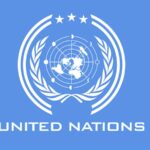With the European Union’s crushing of Poland’s rebellion in undermining its institutional laws, the African Union has a lesson to learn from its counterpart.
It will be recalled that a constitutional tribunal in Poland had issued a judgment that the Polish constitution in some cases supersedes rulings by the union’s uppermost court. The EU and Poland have been at loggerhead for decades over cases of human rights, rule of law and non-political interference in judicial matters.
- Nigeria’s future bleak without restructuring – Yoruba Council of Elders
- Court hears CNG’s suit seeking referendum for Biafra today
Sensing that Poland is questioning its legitimacy and that it might set precedent for other countries to follow, the EU fought back and firmly opposed the move. The Commission’s President, Ursula Von Leyen, said all rulings by the European Court of Justice are binding on all member states’ authorities, including national courts, adding that EU law has primacy over national law, including constitutional provisions. She added: “We will use all the powers that we have under the treaties to ensure this”.
The EU is also at loggerhead with Victor Orban and Vladimir Putin, the Hungarian and Russian President respectively over humanrights matters and has imposed sanctions not limited to travel ban, finance and energy restrictions against their country. With these measures, the EU has been able to maintain stability within the continent.
Filled with hope when established in 2002, the African Union has been a partial success so far with little achieved in the areas of strengthening democracy, press freedom, promoting human rights and respecting the constitutive treaty acts and resolution of the organisation signed by member states.
The African Union can learn from the organisational framework of the European Union by reorganising its structure, making it supreme and enforcing the resolution of the African Court of People and HumanRights, which is mostly defied by member states with no consequences followed. Priority should also be focused on transparency and tackling corruption by the AU peer review mechanism team.
Sanctions against states undermining democracy should not be about excluding them from the African Union activities alone but be extended to cutting all forms of aids from such countries and freezing their assets at the African Development Bank.
In essence, the supreme institution of the African Union is important to Africa’s growth and development.
Moshood Olajide, a Policy Development Analyst, can be reached via [email protected]
 Join Daily Trust WhatsApp Community For Quick Access To News and Happenings Around You.
Join Daily Trust WhatsApp Community For Quick Access To News and Happenings Around You.


